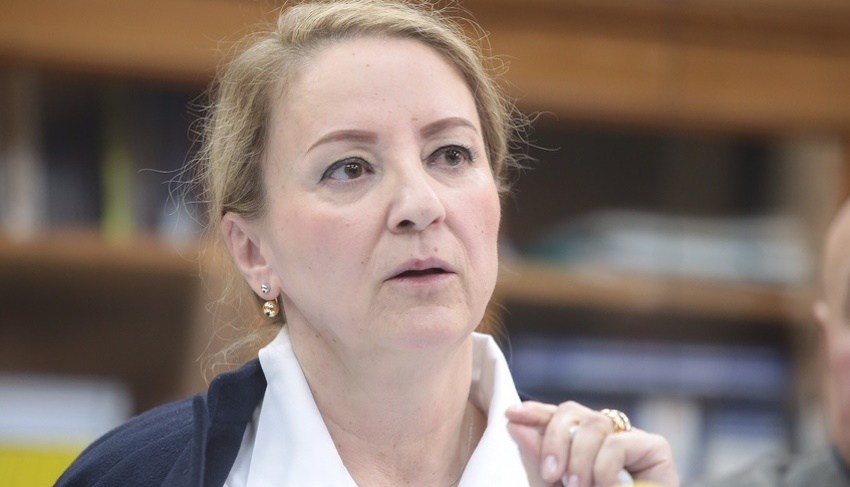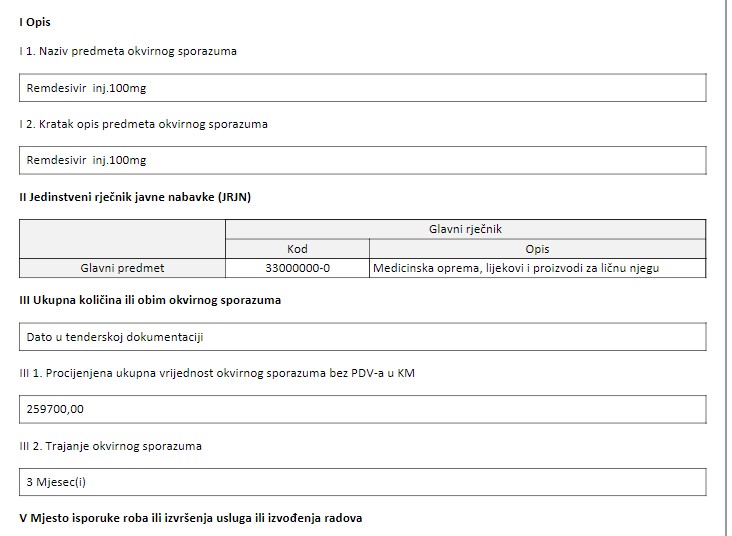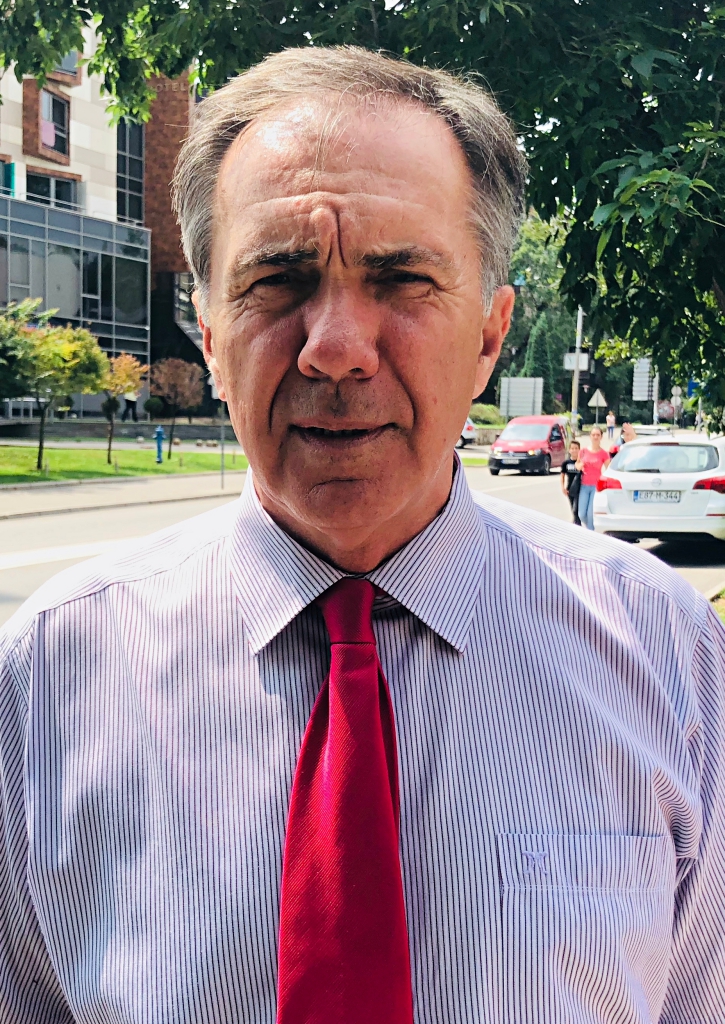The statement of Sebija Izetbegović, director of the Clinical Center of the University of Sarajevo (KCUS), that this institution did not and will not procure "ramdesivir", a drug used to treat patients with coronavirus, provoked violent reactions in the public. Namely, "Remdesivir" is sold in several private pharmacies in BiH.
INVESTIGATION
Sebija's new hunt for a monopoly on patients lives
Why the director of KCUS gave up on the import of "remdesivir"
"Remdesivir" is used for treating patients with coronavirus. Archive
Izetbegović: Known "management" over the backs of patients. Archive
One therapy with this drug, which involves taking six ampoules, costs about 5,500 marks.
Suspicious case
The case of the sale of "remdesivir" in B&H is disputable due to the fact that the director Izetbegović demanded the urgent delivery of this medicine, and then gave up the procurement. Namely, in September, KCUS announced a tender for the procurement of the drug "remdesivir".
According to the documentation for the public procurement of "remdesivir", it is evident that KCUS requested the procurement of this drug in the value of 257,000 KM, which is a sufficient amount for the therapy of about fifty patients. However, after the Federal Ministry of Health gave consent to the company "Farmis" for the emergency procurement of this medicine, director Izetbegović abruptly gave up its purchase.
KCUS tender transcript for "remdesivir": Procurement value 259,700 KM. Archive
- "Remdesivir" will not be procured for KCUS, regardless of the fact that the auction procedure had to be legally brought to an end - said Izetbegović.
However, the medicine was still imported to B&H, through the company "Farmis", which found itself in trouble due to KCUS's withdrawal from procurement. As we find out, the company "Farmis" (which is not owned by B&H) did not have any earnings from the purchase of "remdesivir". It was explained to us that it was exclusively a humanitarian procurement in order for the medicine, which is successfully used all over the world, to reach Bosnia and Herzegovina patients.
- There was an option for "Farmis" to simply throw the medicine in the trash because there was no possibility of return, since this is a very difficult situation in the world. Another option was to put the drug on sale in pharmacies so that patients could, at least in some way, get the drug they refused from KCUS - our source told us.
The question is what is the real reason why director Izetbegović suddenly gave up on this procurement. It is even speculated that patients will not get this medicine for free or at a much lower price, because no one could fit into this business, like in the one with the purchase of a respirators, because the supplier practically worked without commission.
Although Izetbegović justifies herself by saying that the medicine is useless, a respected infectologist, Dr. Ednan Drljević from the General Hospital "Prim. dr. Abdullah Nakaš“ claims that remdesivir is very effective in treating coronavirus, and that it is the only drug we currently have available.
Drljević: "Remdesivir" is effective. Archive
- If this medicine is procured by the Ministry of Civil Affairs of B&H, the Federation or Sarajevo Canton, we will be happy to determine the criteria and give it to our patients. We will do that as long as it is recommended by the most developed and best-organized countries in the world - Dr. Drljević pointed out.
Millions of marks
The consequence of the fact that KCUS made a request to "Farmis" to purchase "remdesivir", but did not buy it, is that doctors now often prescribe it to patients hospitalized at KCUS, who must buy it in one of the private pharmacies if they have 5,500 KM.
Also, it is known that KCUS received most money from the budget during the pandemic and millions of marks are in question. At the same time, many warn that director Izetbegović, with her well-known "management", that is saving over the backs of patients, often the most difficult ones, maintains a monopoly over the lives of patients.
An example in the region
In Serbia and Montenegro, they are very transparent when it comes to "remdesivir", so the officials there regularly inform the public about how much of this medicine they bought with money from the budget. Thus, for patients in these countries, this medicine is provided free of charge, and in these countries "remdesivir" cannot be bought in pharmacies, but is allocated by the competent state funds to hospital institutions.



